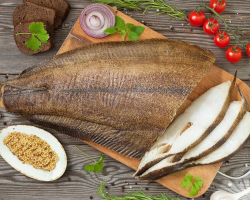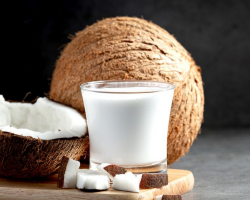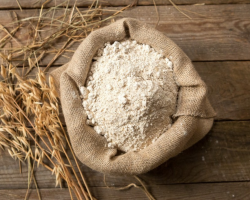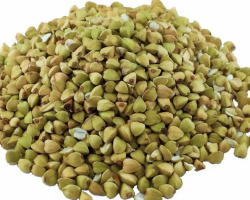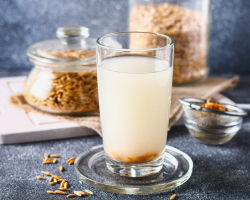Counting the calorie content of products is a good habit. Meat, fish and seafood contain many useful trace elements necessary for the human body every day.
Content
- Calorie content of meat. The benefits and harm of different meat
- Video: “Meat. Useful properties than useful. About 6 types of meat "
- Calorie content of meat: table per 100 grams
- Video: “Chicken. Benefits and harm. What is the useful chicken meat? "
- Calorie content of fish: table per 100 grams
- Video: "Fish and seafood benefits review Types for nutrition"
- Seafood. Benefits and harm to a person
- Calorie content of seafood: table per 100 grams
- Video: "Seafood: beneficial and harmful properties"
Calorie content of meat. The benefits and harm of different meat
Since childhood, a person has been taught that meat is an important component of his diet. It is it that gives him full life and strength and saturates the body with useful trace elements. However, there are opposite opinions among those who adhere to vegetarianism and veganism.
Vegetarians do not consume meat products, but include milk and eggs in their menu, and vegans feed exclusively with plant foods.
On the other hand, a person is also led by his faith. During compliance with Orthodox posts, a person excludes meat products and products from his diet, which has a healing and preventive effect. Muslims, for example, do not eat pork at all and these provide themselves with a huge service, as this meat contains a lot of cholesterol.

Most nutritionists are sure that food without meat is not able to saturate a person and give him enough energy for a full life. The fact. that this product contains many useful amino acids that make the body work properly. The meat contains many proteins, as well as fats.
It is also worth noting that the meat has a very large percentage of water content, on average it is about 75%. And the fat content of the product and its saturation with proteins depends on the variety and part of the body.
You can get a huge number of important trace elements from meat:
- zinc
- iron
- iodine
- magnesium
- potassium
- vitamin E
- vitamin A
- vitamins B.
- vitamin D
It is simply impossible to imagine life without meat products. And if we talk about the benefits of meat, then first of all in this matter it is necessary to take into account its appearance and the amount eaten. The meat of young animals is considered the most useful because it has a lot of protein than fats. In order to saturate the body, the human norm of meat per week is half a kilogram. It is not a large amount that makes the brain cells actively work, but even to prevent the fragility of bones.
Video: " Meat. Useful properties than useful. About 6 types of meat "
Calorie content of meat: table per 100 grams
of course, half a kilogram is an average. which should be eaten. Those who play sports and regularly experience heavy physical activity, need more protein, which means in more meat. A well -compiled meat calorie table will help to calculate correctly the diet:
| Product name | Squirrels | Fat | Water | Calorie content per 100 grams |
| pork | 11,4 | 49,3 | 38,7 | 489 |
| beef | 18,9 | 12,4 | 67,7 | 187 |
| mutton | 16,3 | 15,3 | 67,7 | 203 |
| chicken | 20,8 | 8,8 | 68,9 | 165 |
| duck | 16,5 | 61,2 | 51,5 | 346 |
| goose | 16,1 | 33,3 | 49,7 | 364 |
| rabbit | 20,7 | 12,9 | 65,3 | 199 |
| turkey | 64,5 | 12,0 | 64,5 | 197 |
| guinea fowl | 21,1 | 16,9 | 61,1 | 254 |
| nutria | 20,8 | 10 | 66,3 | 213 |
| horsemeat | 20,2 | 7 | 72,5 | 143 |
There are not many contraindications of meat. All of them are that people suffering from all forms of obesity and problems in the field of cardiovascular diseases are not recommended to use fatty varieties of meat and limit the consumption of pork, since it has a lot of cholesterol. In such cases, the meat is recommended to be cooked either in water or steamed, without oil.
Pork. The benefits and harm of meat
Pork is the most common type of meat and the most beloved by modern humanity. Disputes about the benefits and dangers of pork are still not silent. Many nutritionists are confident that it is difficult enough for the human body, others argue that the amount of nutrients is simply not replaced and insist that it must be consumed regularly, but in limited quantities.
First of all, it is worth noting that the fat layer of pork, that is, fat, has many useful trace elements that provide the health of the nervous system. Only these substances are able to restore nerve cells in the body, namely:
- arachidonic acid - capable of regulating the hormonal background of a person
- selenium - favorably affects the brain of the brain, thereby improving human mental abilities

In addition to these two important substances, a number of other useful ones can be distinguished:
- all vitamins of group B are represented in pork in the tax
- vitamin A
- vitamin RR
- vitamin C
- potassium
- magnesium
- phosphorus
- iron
- manganese
- sulfur
- iodine
- nickel
- chlorine
- cobalt
- tin
- zinc
- sodium
- fluorine
- molybdenum
Such a huge set of trace elements confidently says that you can not only use pork, but also necessary! In addition, with enhanced loads, only pork is able to restore strength in the muscles and develop them.
Using pork, remember its fat content. The fatter the meat, the more calories in it. The most fat are considered to be such parts as Oshek and Pashin (lard), and the most lean is considered to be cutting.
Beef. The benefits and harm of meat
Beef is not as popular as pork and nevertheless it is considered one of the most useful varieties of meat. It is not rarely included in the diet of diet and therapeutic nutrition. This meat is rich in protein, and is also a source of all amino acids important and necessary for a person. It differs from other beef meat in that it is very well absorbed by the body. The meat has an indispensable property - neutralize the increased acidity of the stomach. That is why beef is recommended for those who suffer from gastritis and ulcers.

The red meat of beef is very rich in zinc, which suggests that it is incredibly useful for the female body. In addition, it is often included in a diet for those who periodically suffer from anemia. The harm of this meat is a rather difficult question, but all nutritionists and doctors came to one conclusion: cattle meat is harmful only if the animal constantly fed with nitrates and pesticides.
Unfortunately, more and more often people who breed animals work on them numerous antibiotics and growth hormones. This significantly worsens the quality of meat. In addition, improper storage of meat is the cause of poisoning and the use of a harmful product. Beefs cannot be defrosting and frozen several times. In such cases, it becomes sources of carcinogens.
Bird meat: chicken, turkey, duck. Benefits and harm
Chicken meat is the most famous and in demand both in our country and beyond. This is the most affordable and tasty meat from the entire assortment. Any meat dish can be prepared with courage from chicken: cutlets, dumplings, kebab, goulash and even barbecue. Chicken meat is best absorbed by the human body and is famous for the fact that this is a useful low -calorie product.
It is interesting to note that chicken contains no more than 190 kcal per 100 grams of product, and if you boil it, then only 137 calories will remain in it. That is why chicken meat is considered dietary and is often prescribed to those who are trying to lose weight. However, if you decide to fry the chicken, you risk increasing the calorie content from 190 to 220 kcal. Give preference to steamed meat in a slow cooker or in water, since in addition to a low percentage of fat content, it contains less cholesterol.

Chicken is a source of protein, it is often consumed by athletes, since in combination with other products and physical activity their muscle mass grows. And this product is able to effectively eliminate hunger, saturating the body with useful B vitamins and vitamin A.
Using chicken, you need to be careful about the choice of a bird, so the most useful is only a bird grown at home. The goods that are on the shelves of supermarkets are most likely industrial, extinct antibiotics. Such meat contains many harmful substances.
- The meat of the turkey is very similar to chicken, but is not the most popular product. The turkey has an excellent property - easily absorbed. That is why this product is recommended to be consumed by those who want to lose weight, or have digestive problems
- There are so many useful substances in the meat of turkey that it surpasses all other species. There is plenty of one sodium in it, which is why Miao has a slightly brackish taste. Regular use in the diet of this meat contributes to the process of blood formation in the body
- The breast of the turkey copes with a feeling of hunger. It is best to boil the meat or steam, the number of trace elements with such processing is preserved. Multiply the benefit, you can add green peas to the meat by a side dish, which goes well with it

Utyatina is rightfully considered a delicacy and a festive dish. It is noted that men have a special passion for him, since it favorably affects “male health” and this is not sacred, because it is rich in its composition:
- folic acid
- iron
- potassium
- copper
- riboflavin
- sodium
Uta is tasty, but fatty meat, which means not dietary. But if it is not used too often, you can get undoubted benefits from this product. Fatty acids can negatively affect the health of those who suffer from cardiovascular diseases. Yes, and abuse of ducklings is not worth it due to a high level of cholesterol in meat.

Caesar meat is a curiosity for those who do not breed this bird at home. It is very different from chicken and is not so fat and calorie in comparison with it. The meat contains many useful trace elements:
- faciline
- valin
- treononin
- riboflavin
- b vitamins
- chlorine
- sulfur
- iodine
- chromium
- copper
- manganese
- potassium
- sodium
- calcium

It is recommended that the meat of the guinea fowl is consumed during pregnancy, illness, children and older people to make up for the supply of trace elements and establish digestion.
Video: “Chicken. Benefits and harm. What is the useful chicken meat? "
Calorie content of fish: table per 100 grams
Any fish, river or sea, contains many elements useful for the body. Fish is an integral component of the diet of any person, so it must be eaten often, but in moderation. It has many minerals and fatty acids, such necessary for the human body.

Besides. It has many advantages and only positive influences on a person:
- Makes the percentage of cholesterol in the blood much less
- Able to strengthen the walls of blood vessels. heart muscle and give useful trace elements for the brain, which improves its work
- A person who regularly eats fish feels much better
- When the fish is included in the main diet, the quality of the blood improves
- Fat metabolism in the human body becomes better
- The fish gives "youth" and a person may look good
- Fish is a good prevention of diseases such as angina pectoris and even diabetes mellitus
Calorie content table of different varieties of fish:
| Fish name: | Squirrels | Fat | Calorie content per 100 grams |
| cod | 17,8 | 0,7 | 78 |
| salmon | 24 | 6,5 | 176 |
| mackerel | 19,6 | 14,7 | 211 |
| flounder | 18,2 | 1,3 | 84,5 |
| sprat | 18,5 | 13,1 | 192 |
| trout | 21 | 2 | 164 |
| tuna | 22,7 | 0,7 | 96 |
| pike | 21,3 | 1,3 | 97 |
| crucian carp | 17,7 | 1,8 | 87 |
| mintay | 17,6 | 1 | 79 |
| hake | 16,6 | 2,2 | 86 |
| pink salmon | 20,5 | 6,5 | 140 |
| carp | 19,4 | 5,3 | 125 |
| salmon | 21 | 7 | 147 |
| zander | 21,3 | 1,3 | 97 |
| herring | 17 | 8,5 | 145 |
| keta | 19 | 5,6 | 127 |
| mullet | 17,5 | 2 | 88 |
| bream | 17,1 | 4,4 | 105 |
| smelt | 15,4 | 4,5 | 102,1 |
| vobla | 18 | 2,8 | 95 |
| beluga | 17,5 | 2 | 88 |
| anchovy | 20,1 | 6,1 | 135,3 |
| gobby | 12,8 | 8,1 | 145 |
| milia | 13,4 | 11,5 | 157 |
| burbot | 18,8 | 0,6 | 81 |
| notothenia | 14,8 | 10,7 | 156 |
| perch | 17,6 | 5,2 | 117 |
| halibut | 18,9 | 3 | 103 |
| saira | 18,6 | 20,8 | 262 |
| som | 16,8 | 8,5 | 144 |
| horse mackerel | 18,5 | 5 | 119 |
By using fish very often you can completely protect yourself from strokes and heart attacks.
It is noted that some varieties of fish, namely the family of sturgeon and herring are able to improve the quality of vision, the condition of the skin, hair and nails. When choosing fish, pay attention to the condition of its fins, gills and scales. The less fish succumbed to human “attacks” and the younger it, the more and richer its composition will be.

- There is a lot of vitamin D in fish, which is so necessary for a person for the health of bones
- Fish normalizes digestion and reduces the amount of fats in the blood
- It is noted that regular use of fish reduces the risk of breast and intestines cancer
- The use of fish three times a week contributes to the normal functioning of the thyroid gland and prevents its diseases
Fish oil is the most useful fish component. In order to get maximum fatty acids. You need to eat like a fish or pike.
Video: "Fish and seafood benefits review Types for nutrition"
Seafood. Benefits and harm to a person
It is no secret to anyone that since ancient times a person has included seafood in his main diet. Everyone at least once in a life to try a certain sea delicacy. They are incredibly tasty and healthy and are very different from any other food. The modern market is more and more full of various names:
- crab meat
- media
- oysters
- langustens
- lobsters
- shrimps
- squids
- octopuses
- saws
These products have become popular dishes of restaurants, displacing the usual crayfish. In addition, a person began to actively eat seaweed, adding it to salads, seasoning it with garlic and oil. Seafoods differ not only in taste qualities, but also by a high content of nutrient and beneficial substances. The "Gifts of the Sea" contains a huge amount of iodine, as well as calcium, iron, phosphorus and magnesium.

- Very valued lately saws - Seafood. with a huge content of zinc, sulfur and a group of vitamins B. Including scallops in the diet, you can “saturate” the body with useful trace elements and prevent prevention from many diseases
- Seafoods are incredibly rich in protein, so easily learned for the human body and useful for bones and muscle mass
- To get maximum benefits from seafood, you should always undergo heat treatment. This will exclude the presence of sticks in food and relieve poisoning
- Oysters The richest product for vitamin D. The lack of which leads to cancer. Except vitamin D, there is a lot of vitamin A and most concentrated iodine in them
- Octopus - a marine animal with a huge amount of fatty acids necessary and useful for humans. It allows the prevention of heart disease and even atherosclerosis. The octopus is absorbed very easily
- Sea cabbage- The source of iodine. It needs to be eaten wisely and no more than forty grams per day. This is a low -calorie product with a high content of vitamins
- Crab -protein food with a slight fat content. This is not just a delicacy, it is a dietary product for humans. They have a lot of healthy fatty acids omega 3 and omega 6
- Squidssources of vitamins A, E, C and PP. They are an excellent preventive agent from heart disease and blood vessels
- Shrimpsthey contain a lot of potassium and iodine. They have a lot of omega fatty acids 3. regular use of shrimp reduces the risk of cancer and improves the functioning of the immune system
- Media- These are “champions” in the content of protein. They have more protein than in any meat or fish. They are small -calorie and contain many useful trace elements
Calorie content of seafood: table per 100 grams
Like any product, seafood requires their proper eating. The diet for everyone will help to calculate the calorie content of seafood:
| Product name: | Squirrels | Fat | Carbohydrates | Calorie content per 100 grams of product: |
| red caviar | 32 | 15 | — | 280 |
| black caviar | 36 | 10 | — | 210 |
| crab sticks | 17,5 | 2 | — | 88 |
| shrimps | 18,3 | 1,2 | 0,8 | 87 |
| crab meat | 21 | 3 | — | 79 |
| media | 11,5 | 2 | 3,3 | 77 |
| squid | 18 | 2,2 | 2 | 100 |
| octopus | 14,9 | 1,4 | 2,2 | 82 |
| sea cabbage | 0,9 | 0,2 | — | 5,4 |
| rapan | 16,7 | 1,1 | — | 76,7 |
| crayfish | 20,5 | 0,7 | 0,3 | 90 |
| oyster | 9 | 2 | 4,5 | 72 |


